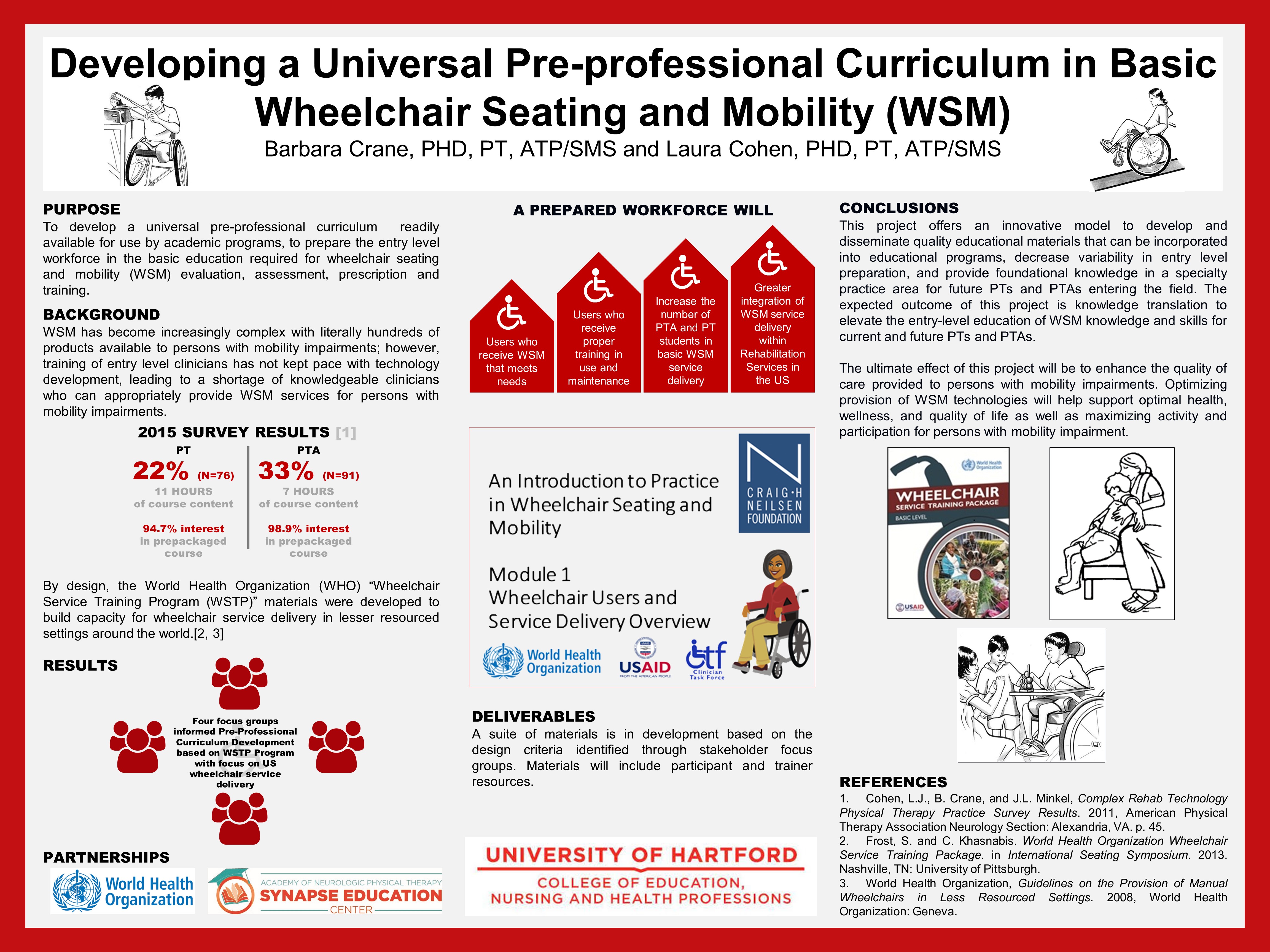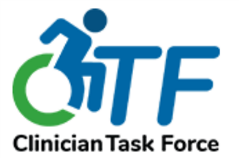Wheelchair Seating & Mobility Curriculum
The Wheeled Seated & Mobility (WSM) Curriculum is designed as a ready to use curriculum for pre-professional PTs and PTAs. It is an education and training package to help prepare the entry level workforce and increase the likelihood students are exposed to a minimal standard of WSM knowledge and skills in the practice of WSM evaluation, prescription, and training to meet the needs of persons with basic level mobility impairments.
Overview:
The wheelchair is one of the most commonly used assistive devices for enhancing personal mobility. For people with certain mobility impairments, a wheelchair that meets their physical, lifestyle and environmental needs is an essential tool, enabling them to enjoy vastly improved health, social and economic well-being, and quality of life. To ensure effective personal mobility, wheelchair users need a wheelchair that fits them correctly and meets their needs. This requires an approach that is responsive to individual needs. An effective way of meeting the individual needs of wheelchair users is the provision of wheelchairs through quality WSM services. However, there are limited preservice training opportunities for professionals to gain the skills needed to prescribe a wheelchair effectively. The expected outcome of this project is to facilitate knowledge translation and elevate the entry-level education of WSM knowledge and skills for current and future PTs and PTAs. The ultimate effect is to enhance the quality of WSM services and care provided to persons with mobility impairments. Optimizing the provision of WSM technologies will help support optimal health, wellness, and quality of life as well as maximize activity and participation for persons with mobility impairments.
Program Aims:
1. Optimize provision of wheelchair seating and mobility technologies to people with mobility impairments to:
- Help support optimal health, wellness, and quality of life, and
- Maximize activity in participation for persons with mobility impairments.
2. Decrease curriculum variability in entry level physical therapy professional training for basic wheelchair seating and mobility.
3. Address the shortage of knowledgeable clinicians by
- Improving opportunity for every PT and PTA to graduate with the requisite knowledge to evaluate a patient who has basic wheelchair seating and mobility needs AND
- Provide an appropriate solution OR know when and how to refer the patient to an expert clinician.
Method:
To achieve these objectives, a suite of materials is available and customizable at no cost, for voluntary use by academic programs in the education and training of physical therapy professionals.
Initially these materials are available to PT and PTA programs with the intent to broaden access to other critical stakeholders in the future (OT, OTA, physicians, non-physician providers – NP, PAs).
For a full overview of this program watch this video (37:42)

.tmb-medium.jpg?Culture=en&sfvrsn=9ba45f43_1)

Acknowledgements:
This collaborative project is attributed to partial financial support from a Quality of Life Project Grant by the Craig H. Neilsen Foundation entitled “Improving SCI quality of life through increased access to clinicians trained in assistive technology.”
The content for 6 of the 10 online modules are based off the Basic and Intermediate WHO WSTP designed by international experts.


Our team included the following Partners:
 Clinician Task Force- A nonprofit clinical advocacy organization promoting consumer access to quality WSM technologies and services
Clinician Task Force- A nonprofit clinical advocacy organization promoting consumer access to quality WSM technologies and services
 University of Hartford- Lead organization for the Craig H Neilsen Grant
University of Hartford- Lead organization for the Craig H Neilsen Grant
 Rehabilitation & Technology Consultants- Supporting partial contribution work on this project
Rehabilitation & Technology Consultants- Supporting partial contribution work on this project
Academy of Neurological Physical Therapy – For assistance vetting, hosting, promoting and maintaining the final product.
Special Acknowledgements goes to Subject Matter Experts: Barbara Crane, Laura Cohen, Kelly Waugh, Jean Ann Zollar, Elizabeth Cole and Penny Powers for content development.